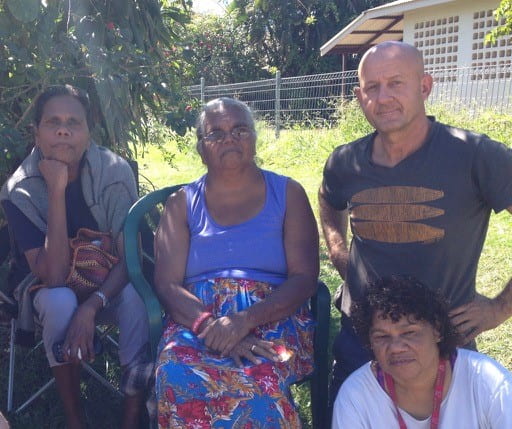UNE Adjunct Professor Nick Reid has spent a lifetime chasing and unravelling the mysteries of language. It’s a fascination that could have taken him anywhere in the world, but Nick has found the most extraordinary insights could be gained at his own front door.
———–
“I believe linguistics offers one of our best windows into what it means to be human. Language is a skill that’s universal to humans, and definitive of our species. It’s always intrigued me.
“At school, I persuaded a few principals to let me focus on languages more than the curriculum allowed, managing to squeeze in Latin, Classical Greek and Japanese on top of some more familiar European languages. So, I was off to a strong start, though you don’t need to be a ‘polyglot’ to be a linguist!
“Drawn to its sense of exoticism, I set off to ANU to specialise in Japanese, and a helpful nudge from a course advisor steered me towards linguistics also. In my second year, I chanced upon a unit in Aboriginal languages – the only one of its kind in 1979 – and bang! Here I was, a middle-class eastern-seaboard white boy, who thought he knew what it was to ‘be an Australian’, yet I’d never heard it was home to 250 languages! Exoticism at my front door! From that time, Australian languages became my primary focus.
“Over 30 years I’ve covered a fair bit of ground. I’ve published grammars and dictionaries of some Aboriginal languages of the Daly River region in the NT, as well as written a body of papers about the features of those languages and their implications for linguistics.
“This seemingly chance decision to work on the Daly River languages, turned into a cornucopia of linguistic riches, for these languages are dazzlingly complex, and typological linguists around the world have marvelled at some of their features.
“A particular highlight has been researching Aboriginal oral traditions around sea-level rise with my ex-UNE colleague Patrick Nunn. We found stories describing inundation events at different depths all along the coast, which for the first time, we could match with independently established chronologies of post-glacial sea level rise, providing strong evidence that these stories described real events from more than 8,000 years ago.
“This has forced a rethink about how long non-literate humans might keep knowledge of real events. But the ability to nurse stories over 300+ generations seems to be a narrative feat unique to Aboriginal Australians, made possible through a combination of specific aspects of their narrative culture, and continual, stable habitation of the continent over 50 thousand years. It means Aboriginal people have been eyewitnesses to Holocene era events that we’ve otherwise only theorised about!
“On the teaching side, my early career coincided with the emergence of online delivery technologies, and I found myself drawn to the development of interactive resources supporting the teaching of linguistics in various ways. Some of these enjoyed wide up-take, both across Australian universities and overseas, and I was lucky enough to be the recipient of a Carrick Award for those contributions.
“What makes a good linguist? A curious and open mind. A linguist should be interested in theory, yet willing to tweak or abandon that theory in a heartbeat, in the face of new evidence. The linguists I admire the most tend to be fieldworkers, who get out and embed themselves in communities. For me, that’s involved some pretty remote places, so it helps if you’re okay with going to bed hungry yet again in a mosquito-infested swamp surrounded by crocodiles!
“The study of Aboriginal languages has been the perfect mix of pure and applied research. I can write a paper explaining how noun class phenomena of a language contributes to a theoretical debate about classification and cognition, then turn around and help the speech community of that same language produce school books based on that same noun class data.
“I’ve had the enormous pleasure of working closely with many Aboriginal people who have invested time and effort in teaching me their languages. It’s given me great satisfaction to be able to use what I learn to the direct benefit of the very people who have been my teachers.
“The study of language not only offers rich insights into our evolution, history, and cognitive capacity, but on top of all that, it is laced with insight, intrigue, humour, and the particular pleasures of poetry, wordplay, and multilingual skills. In hindsight, I chose very well.”



Recent Comments